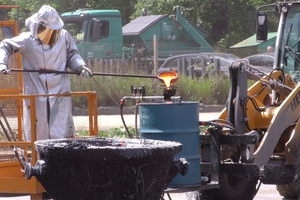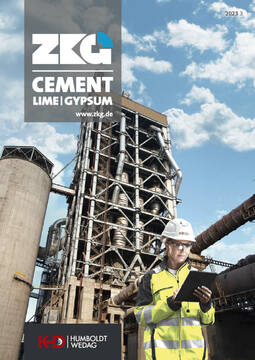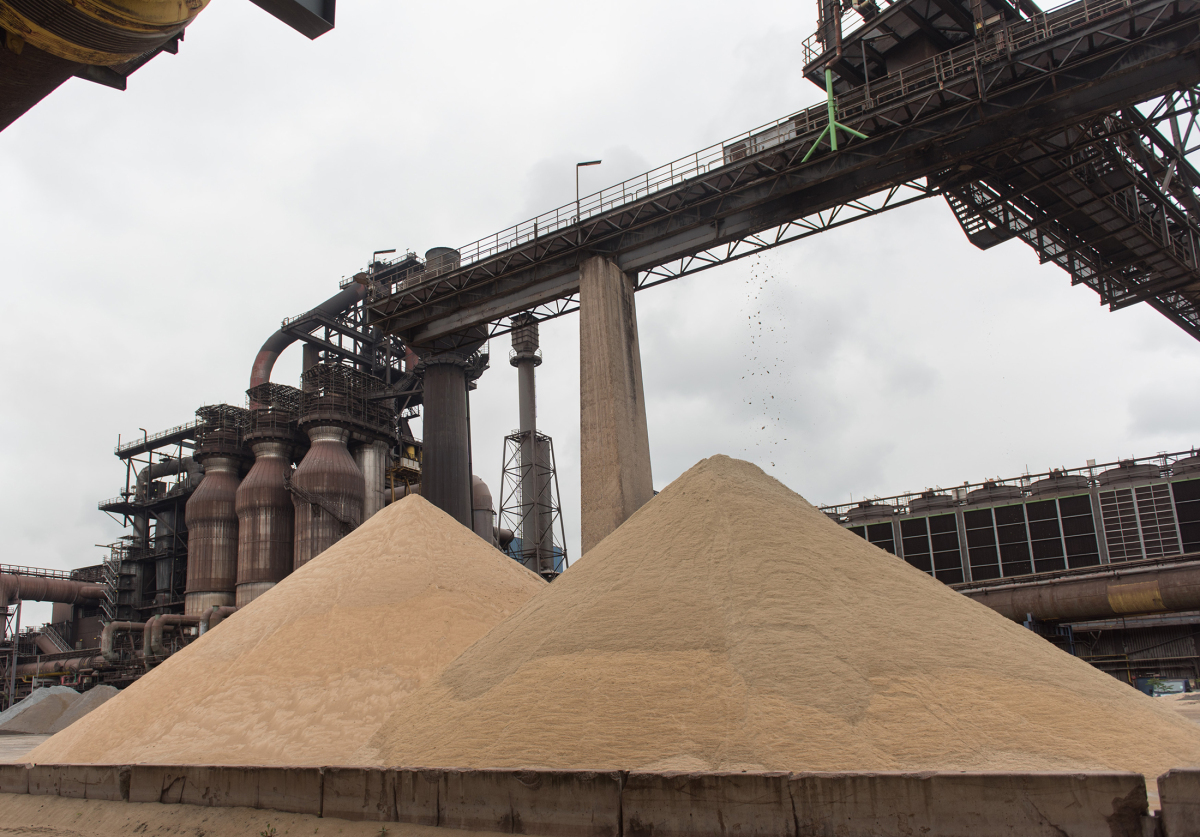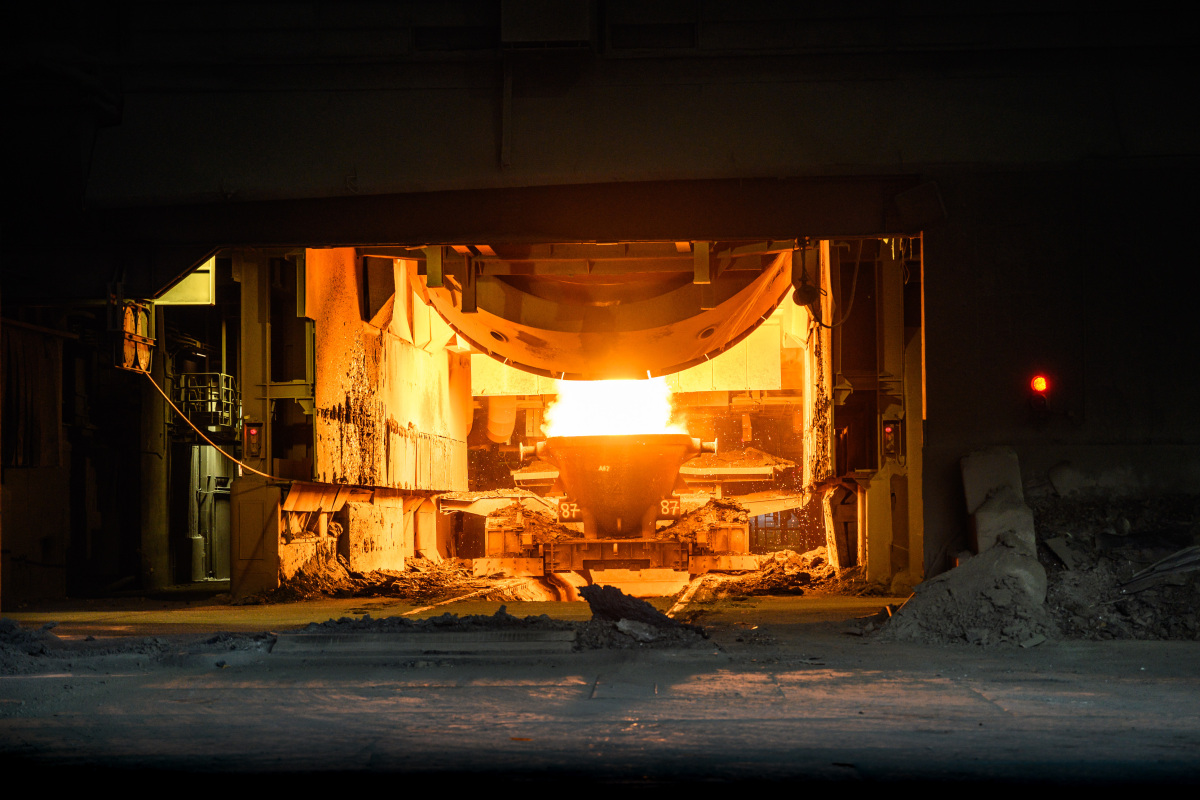Electric furnace slags for traffic route construction
Around two and a half million tons of steel mill slags, which include electric furnace slags (EOS), are used in traffic route construction in Germany. With the entry into force of the Substitute Construction Materials Ordinance (EBV) in August 2023, the regulations for the applicability of these by-products will change, especially in the assessment of environmental compatibility. The PROEOS 2 research project by FEhS – Building Materials Institue and VDEh – Operations Research Institute has shown that metallurgical and processing measures will allow EOS to continue to be used largely in the proven areas of application in the future. In addition, the investigations prove that EOS could also be processed as a latent hydraulic binder into a new, CO2-saving product for the cement industry.
Research manager David Algermissen of the FEhS Institute: “In the project, it was shown that metallurgical conditioning with sand can lead to a significant reduction of individual, environmentally relevant elements in the leaching process. An important finding was that the quality of the natural sand has a major influence. With regard to EBV, it was thus possible to develop measures in metallurgy, processing technology and also circuit water management in order to set a material class of SWS-2 or also SWS-1. As a result, EOS can continue to be used in traffic route construction, with benefits for the steel mills and the numerous downstream SMEs in the process chain. By means of special cooling, after such conditioning, the material could even be used as a binder in cement, provided there is a corresponding addition to the regulations.”
For Thomas Reiche, Managing Director of the FEhS Institute, the research project is another important contribution to a sustainable circular economy: “With the transformation of the economy, the framework conditions for the use of secondary building materials are also changing. In order to be able to continue using iron slags as proven by-products of the steel industry in traffic route construction, in cement and concrete, in fertilizers as well as in new areas, we have been researching their modification and optimization with our partners for many years. The results of PROEOS 2 show once again that we are on the right track. With the aim of conserving natural resources and promoting climate protection with high-quality products.”
The PROEOS 2 project, funded by the German Federation of Industrial Research Associations AiF and the Industrial Cooperative Research IGF with funds from the German Federal Ministry of Economics and Climate Protection, was carried out from April 1, 2019 to December 31, 2021. In addition to the FEhS Institute and the VDEh, the Max Aicher Umwelt GmbH was involved.




